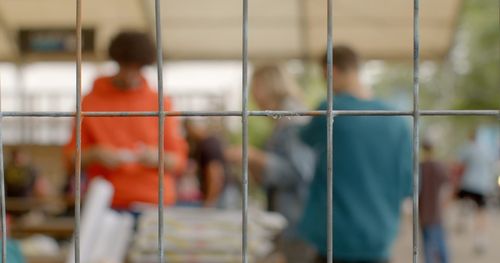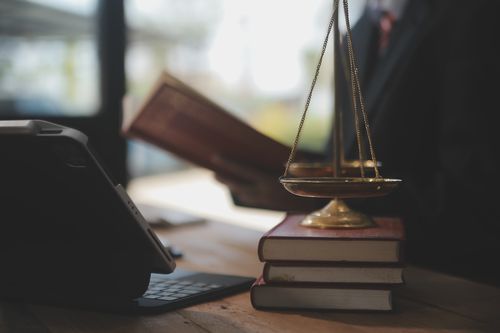As a parent or guardian, your child’s well-being — both in terms of safety and future opportunities — is always a top priority. Unfortunately, teenagers can make decisions that lead to legal trouble.
It’s crucial for families to understand the most common juvenile crimes in Florida, along with the potential legal consequences. While Florida’s juvenile justice system is largely focused on rehabilitation, certain offenses can carry serious penalties that may impact a child’s future for years to come.
The Florida Juvenile Justice System: A Different Process
Florida’s juvenile justice system functions differently from that of adults. Its main emphasis is on rehabilitation instead of punishment. The goal is to hold juveniles accountable for their actions while providing them opportunities to learn from their mistakes and become productive members of society.
Understanding Consequences: Why It Matters
Even though the juvenile justice system in Florida emphasizes rehabilitation, there are still real consequences for juvenile offenses. These repercussions can vary widely — from probation and community service to detention in a juvenile facility.
Have you considered how a juvenile record might affect your child’s future? The impact can be significant, influencing their chances of getting into college, finding a job, or even renting a home down the line.
What is Considered a Juvenile Crime in Florida?
In Florida, anyone under 18 is typically considered a juvenile. Most juvenile crimes are dealt with in the juvenile court system, but some serious offenses can be moved to adult court if the situation calls for it.
This usually happens if a juvenile is charged with a violent crime or has repeated offenses. In these cases, the penalties for the offense can be much tougher — just like what adults might face.
Generally, juvenile offenses cover a wide range of activities — some might seem minor, but others can have long-lasting effects. Depending on their severity, certain crimes can be charged in juvenile court. These offenses are categorized as delinquent acts, or in other words, crimes committed by minors.
The key takeaway is that juvenile crimes are treated differently than adult offenses, with the main goal being to help young people rehabilitate rather than just punish them.
The Top 6 Most Common Juvenile Crimes in Florida
The most common juvenile offenses in Florida aren’t the work of criminal masterminds or teenage mob bosses — they usually stem from poor decisions or giving in to peer pressure. However, while they might seem minor at first glance, these slip-ups can have a serious impact on a young person’s future.
Here’s a look at six of the most frequent juvenile crimes we’ve encountered and their potential consequences.
- Petty Theft and Shoplifting: These offenses involve stealing items with a relatively low value. While seemingly minor, a shoplifting conviction can still have serious consequences.
- Vandalism and Property Damage: This includes acts such as graffiti, destruction of property, and vandalism. The severity of the charges depends on the extent of the damage caused.
- Drug Possession or Use: Juvenile drug charges range from possession of marijuana to more serious offenses involving harder drugs. The specific consequences will depend on the type of drug and the quantity involved.
- Assault or Fighting: This category encompasses assault and battery charges, including bullying or school fights. The severity of the charges can vary based on the circumstances and the extent of any injuries inflicted.
- Underage Drinking and DUI: Florida has strict laws against underage drinking and driving under the influence (DUI). These offenses can have serious consequences, including license suspension and even jail time.
- Trespassing: Juveniles can face trespassing charges for entering restricted areas without permission. This can include trespassing on private property or entering secured areas such as schools after hours.
Potential Consequences for Juvenile Offenders
A guilty conviction following a juvenile crime or delinquent act can carry a range of potential consequences.
These may include:
- Diversion Programs and Counseling: These programs prioritize rehabilitation and allow juveniles to learn from their mistakes and avoid future offenses.
- Probation: Probation allows juveniles to remain at home under court supervision. Violating probation terms can lead to harsher penalties.
- Juvenile Detention: In some cases, juveniles may be placed in a secure detention facility, especially for serious or repeat offenses. The length of stay in detention varies depending on the case.
- Fines and Restitution: Juveniles may be ordered to pay fines and restitution to compensate victims for any damages caused by their actions.
- School and Academic Impact: Criminal charges can negatively impact a juvenile’s academic standing and even lead to expulsion in some cases.
Long-Term Consequences of Juvenile Convictions
A juvenile record can have lasting repercussions for your child. It can show up on background checks, impacting a young person’s ability to:
- Get into college: Many colleges consider a juvenile record during the application process.
- Secure a job: Employers often conduct background checks, and a juvenile record can make securing employment much harder.
- Rent an apartment: Landlords may be less inclined to rent to someone with a criminal record, even a juvenile one.
Sealing and Expunging Juvenile Records: A Path Forward
Fortunately, Florida law allows for the sealing or expunging of certain juvenile records in some cases. This process essentially removes the record from public view, making it much less likely to hurt a young person’s future.
The experienced juvenile defense attorneys at Malcolm Anthony, P.A. can advise you on the eligibility for record sealing or juvenile expungement.
The Role of a Juvenile Defense Attorney
If your child is facing charges for juvenile crime, working with an experienced juvenile defense attorney who understands the complexities of Florida’s juvenile justice system is essential. A skilled attorney can help ensure your child’s rights are protected, explore alternative resolutions, work toward minimizing the long-term consequences of the offense and more importantly, fight for their freedom.
At Malcolm Anthony, P.A., we are committed to helping families protect their kids and fight for the best possible outcome for their child’s future.
You can count on our attorneys to:
- Investigate the case thoroughly,
- Negotiate with prosecutors for the best possible outcome for your child and your family,
- Represent your child in court, and
- Advise you on your legal options, including the potential consequences of different legal paths and help you make informed decisions.
Protect Your Child’s Future With Experienced Legal Representation
Understanding the juvenile justice system and the potential consequences of juvenile crimes is essential for protecting your child’s future. If your child is facing delinquency charges, don’t hesitate to contact our Ponte Vedra Beach. With Malcolm Anthony, P.A. in your corner, you can navigate the system effectively and work towards a positive outcome for your child and family.
Even if your child has made a mistake, it doesn’t mean their future is ruined. With the right legal support and guidance, your child can get the second chance they deserve to become successful adults. Call us at (904) 285-4529 to schedule a consultation.



